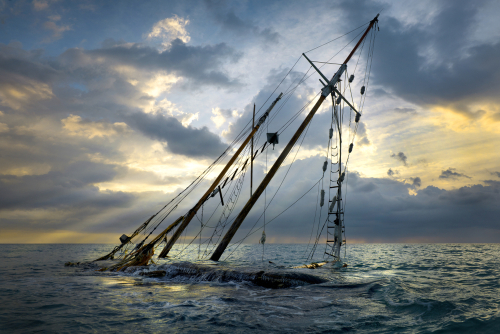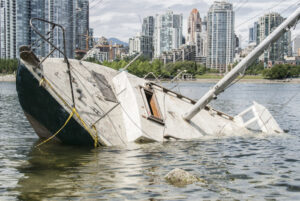Boating is a favorite pastime for many in the Chicago area, including on scenic Lake Michigan, Flatfoot Lake, Maple Lake, and others. However, there are many boating accidents in the state, including 21 boaters who died in boating accidents in 2020.
A common problem in boating injuries and deaths is the boat capsizing in bad weather or other reasons. This is a severe emergency. But if you keep your head and follow the advice below, the situation can be resolved safely. If you were injured in a recent boating accident, our Lake County personal injury lawyer at The Law Office of Robert T Edens can help today.
Why Do Boats Capsize?
Most capsizing cases involve small boats, about 10% being eight-foot crafts. Other standard capsized boats are 15 to 19 feet long, representing 40% of all cases. Many of these boats are for fishing and the cockpits are hard to drain, frequently on the water in bad weather, and carry too much gear.
Also, many boats capsize because of improper weight distribution. Boats in the 15 to 19-foot range are often the most susceptible to capsizing because of poor weight distribution. All it can take is one person too many on the boat to cause the boat to flip in rough water. Other common causes of capsizing boats are leaks and piloting the boat at an unsafe speed during turns.
How To Handle Your Boat Capsizing
The first step to dealing with your boat capsizing is to account for everyone on the vessel. If anyone is missing, they could be under the boat. If it is possible to get the boat upright again, but if it is impossible, get onto the hull and wait for help. Fortunately, most capsized boats do not sink, so staying out of the water can help you avoid cold water temperatures and the risk of drowning. Ensuring everyone in the boat has on their life jacket also reduces the risk of injury or loss of life.
Stay With Your Boat
Next, staying with your capsized boat and waiting for someone to help you is vital. Remember that seeing a capsized boat is much easier for others than a few people in the water. If the boat drifts away or goes under, try to find something to keep you afloat and visible while waiting for help.
Keep your head as far out of the water if you have nothing to hold onto. Put your arms across your chest and pull in your knees to save energy and reduce heat loss. You should not attempt to swim to shore or tread water; both actions use energy quickly and can lower your body temperature.
Contact Our Lake County Personal Injury Lawyer
If you were in a boat accident because of someone’s negligence, you have legal options and could be eligible for compensation in a claim or lawsuit. Contact our Lake County personal injury lawyer at The Law Offices of Robert T. Edens, P.C. for assistance with your boat accident case at (847) 395-2200.


 When you are out to sea, and your boat capsizes, there is nothing you can do but wait to be rescued. Capsizing boats
When you are out to sea, and your boat capsizes, there is nothing you can do but wait to be rescued. Capsizing boats  While not as common as motor vehicle accidents, boating accidents have caused a number of serious injuries and fatalities in Illinois.
While not as common as motor vehicle accidents, boating accidents have caused a number of serious injuries and fatalities in Illinois.
